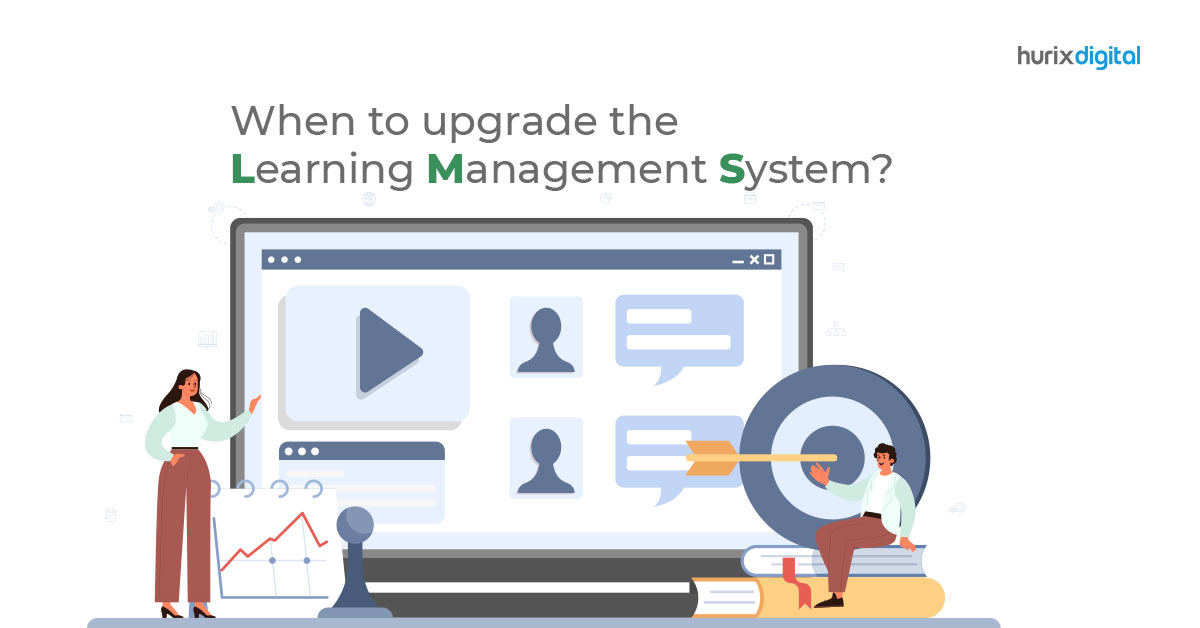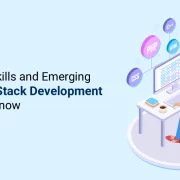
When to Upgrade the Learning Management System?
Summary
Learn when it’s time to upgrade your Learning Management System (LMS), focusing on signs of outdated technology, evolving learning needs, and the benefits of adopting newer, more advanced systems. Learning management systems have become essential in the modern learning landscape and are powerful tools that can significantly impact how you impart quality education or training.
Statistics show that, post the COVID-19 pandemic, around 90% of students prefer online learning instead of traditional learning methods. As technology advances and new learning methods are adopted, educators and trainers need access to the latest tools to keep up with the times.
As with any tech, learning management systems need to be upgraded periodically to enable educators to match the current learning needs of the era.
In this article, we look at some key factors to help you decide whether or not it’s time to upgrade your learning management system.
Also read: 5 Benefits of an AI-based LMS
Table of Contents:
Signs that Tell You It’s Time to Upgrade Your Learning Management System
There are several tell-tale signs that you can look out for that will make it clear that it’s time that your current learning management system needs an upgrade. Recognizing these signs and being proactive will ensure that you are always on par or ahead of the ed tech curve.
1. Limited Functionality
A learning management system should include various features and functionalities that support your organization’s goals. However, the demand for new learning methods increases as technology advances.
In 2023, if your current LMS lacks personalized learning paths, gamification, or multimedia content, it may be time to upgrade to a more capable system.
2. Inadequate Performance
Slow-performing LMSs can be aggravating for both system administrators and end users. Slow load times, frequent crashes, and other technical issues can all contribute to a poor user experience, affecting the success of your training programs.
If your LMS cannot support many concurrent users or courses, consider upgrading to a more robust and stable system.
3. Inadequate Reporting and Analytics
A learning management system must be able to provide detailed reporting and analytics that can be used to make informed training program decisions.
However, suppose your current LMS does not offer the level of reporting and analytics required to track your learners’ progress, measure the success of your training programs, or identify areas for improvement. In that case, it may be time to upgrade to a system that does.
4. Limited Scalability
The number of users and courses in your organization will grow as it grows. As a result, slow load times, difficulty tracking progress, or a lack of reporting capabilities may occur if an LMS cannot handle increasing users and courses.
If you’re having these problems, it might be time to upgrade to a system that can scale to meet your needs.
Also read: Why do we need an AI-Based Recommendation Engine in an LMS?
5. Incompatibility with Modern Technology
The world of technology is constantly evolving rapidly, and an LMS must be able to integrate with modern technologies such as mobile devices, tablets, and web-conferencing systems.
If your current LMS is incompatible with these technologies, it may be time to upgrade to a system that is more capable of supporting them. For example, if your LMS does not support mobile devices, learners will struggle to access learning materials and track their progress while on the go.
6. Poor Customer Support
If a learning management system is a tool your organization relies on heavily, then having access to support and assistance when you need it is essential.
Suppose your current LMS solution needs adequate support and assistance. In that case, consider upgrading to a system that is better equipped to meet your needs and provide you with the help you require for your organization’s uninterrupted functioning.
Top LMS platforms include on-demand training, dedicated support teams, and 24-hour customer service to ensure that you always have help when you need it.
7. Limited Integration Capabilities
Top LMS platforms seamlessly integrate with other tools and systems used by most organizations and constantly upgrade their capabilities to do so with new and upcoming technologies.
If your current LMS cannot integrate with the latest tools, it may be time to upgrade to a system that can provide more robust integration capabilities.
For example, a learning management system that integrates seamlessly with your existing systems can help streamline processes, automate data transfer and simplify the user experience.
8. Limited Customization Options
A one-size-fits-all solution only sometimes works for some organizations. Instead, a learning management system should provide a wide range of customization options that can be used to tailor the system to your organization’s unique needs.
Customization, such as branding, white labeling, and custom themes, are a few basic options that top LMS platforms have.
If your current LMS cannot offer the customization options you need to adapt to the changes in technology and learning methodologies, it may be time to upgrade to one that can meet your organization’s current and future goals.
9. Inadequate Security
As more people register for online learning, learning management systems must keep up with the ever-evolving cybersecurity threats.
A breach in an LMS can lead to the loss of sensitive personal and financial user data, leading to irreversible reputational damage. As a result, top LMS platforms keep upgrading with the latest security measures needed to ensure that an organization’s intellectual property cannot be misused or distributed.
Summing It Up
When the current system does not meet the organizational goals, does not provide enough functionalities, is slow, does not provide adequate reporting and analytics, is not scalable, is not compatible with modern technologies, and does not provide good support, an LMS upgrade is required.
By considering these indicators and evaluating your current LMS, you can determine whether an upgrade is needed to support your organization’s goals and objectives better.
Hurix Digital’s learning management system is a cutting-edge platform with many features and functionalities to support your organization’s goals.
Our LMS makes creating and delivering effective training programs simple thanks to its user-friendly interface, customizable design options, and robust reporting and analytics capabilities, making it one of the top LMS platforms available today.
Hurix Digital’s is the perfect tool to support your organization’s goals with its wide range of features, modern technology compatibility, and robust security. Contact us today to schedule a demo and see how Hurix’s LMS can benefit your organization.

Currently serving as the Vice President of Technology Delivery Operations at HurixDigital, a prominent global provider of digital content and technology solutions for publishers, corporations, and educational institutions. With over 16 years of experience spanning EdTech and various domains, I hold certification as a SCRUM Product Owner (CSPO). My expertise includes operations, finance, and adept people management skills.






